- Degree & Programs
- Undergraduate
- College of Engineering
Degree & ProgramsDegree & Programs
Undergraduate College of Engineering
-
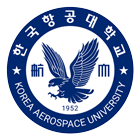
School of Aerospace and Mechanical Engineering
- Location :
- Rm No 300 , Mechanical Engineering Building
- Telephone :
- +82 2 300 0100 / 0170
- E-mail :
- aesec@kau.ac.kr / mdsec@kau.ac.kr
Introduction
The School of Aerospace and Mechanical Engineering aims to train high caliber engineers with expertise and executive ability in the aerospace and mechanical industries. We offer two main programs: Aerospace Engineering and Mechanical Engineering. The educational objective of our programs is to produce aerospace and mechanical engineers who can build on their basic education and apply their engineering knowledge and skills to relevant fields. They will become professionals with comprehensive knowledge and creative engineering design skills. The school will prepare our students to be competent, responsible global leaders who communicate effectively and develop problem-solving skills through teamwork.
Freshmen entering the department enroll in a common curriculum and then choose one of two majors. Students can change their major if they meet the necessary requirements before the first semester of the fourth year. In addition, we are striving to nurture talent in the field of the Fourth Industrial Revolution by providing convergence programs such as the Interdisciplinary Program of Unmanned Aerial Systems Engineering, Flight Control, Aviation Maintenance System Engineering, and Interdisciplinary Program of Automated Driving System Engineering. These programs are offered in conjunction with other schools and departments, including the School of Electronics and Information Engineering, Department of Software and Computer Engineering, Department of Materials Science and Engineering, and Department of Aeronautical Science and Flight Operation. Our graduates find employment in major leading companies in aerospace, automobile, shipbuilding, electronics, and other related industries. We pride ourselves on high employment rates in today’s leading companies.
Study
The first and second year courses of the School of Aerospace and Mechanical Engineering consist of co-requisite subjects. Most of the first year courses consist of liberal arts and MSC (Mathematics, Sciences, and Computers) courses, and the second year courses cover the basic theories required by both majors. Aerospace Engineering students study the mechanics, design, and manufacturing theories associated with airplanes, unmanned aerial vehicles (UAVs), spacecraft, satellites, and rockets. Courses in Mechanical Engineering mainly deal with thermal mechanics, fluid mechanics, mechanics of materials, dynamics, internal combustion engines, production engineering, automation, automatic control and system engineering. In the fourth year, students are challenged to solve practical engineering problems by taking Capstone Design course, developing comprehensive engineering competencies.
Future
The Bachelor of Engineering degree is awarded after fulfilling the requirements of an Aerospace or Mechanical Engineering course. Aerospace and Mechanical Engineering graduates are well-qualified to take advantage of career opportunities in the aerospace, mechanical, manufacturing industries, airlines, civil and governmental agencies, and private and governmental research institutions. Master's and doctoral programs are also available for those who wish to continue their studies with more professional experience and guidance.
-
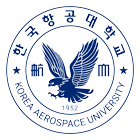
School of Aerospace and Mechanical Engineering
- Location :
- Rm No 308 , the Electronic Engineering Building
- Telephone :
- +82 2 300 0120 , 0130
- E-mail :
- jhkim@kau.ac.kr , sjlim@kau.ac.kr
The School of Electronics, Telecommunication and Computer Engineering fosters high level engineers who will lead the core hi-tech domains of the future, such as the avionics, electronics, IT and computer industries.
The school was founded in 2000 by integrating the former departments of avionics, aviation IT and computer engineering. After completing the common and elective subjects in the first year, the students acquire knowledge in one of the following specialty areas - IT, electronics, avionics and computer data engineering - from the beginning of the second year. In order to foster high level science and technology talents equipped with the ability to resolve problems independently, the curriculum includes diverse basic and liberal arts subjects, in-depth major subjects, lab experiments, and on-the-job study programs.
This school is designed to enable students to play leading roles in their respective areas by training creative talents on inclusive and diverse training programs. To that end, the school helps the students to acquire the latest knowledge from the most advanced fields by progressively adapting its curriculum to reflect new technological developments in the industrial fields.
Furthermore, it enables the students to use the knowledge they acquire from the theoretical lectures on their respective major subjects through lab experimentation and on-the-job practice, and encourages them to study hard by holding academic seminars with experts invited from home and abroad, thereby narrowing the gap between the academic and industrial scenes. The school fosters excellent personnel in these rapidly-changing fields by helping students to develop their ability to think and express themselves through design subjects and project-based studies. -
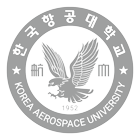
Department of Materials cience & Engineering
- Location :
- Rm No 420 , the Mechanical Engineering Building
- Telephone :
- +82 2 300 0160
- E-mail :
- eun9706@kau.ac.kr
Introduction
In response to the increasing global demand for advanced materials engineering technology in all industries, including aerospace, electronics/semiconductor/display, steel/mechanical/automotive, nano/chemical, renewable energy, and bio/medical, the Department of Materials Science & Engineering teaches, experiments, and researches on basic, advanced, and applied processes of metals, ceramics, polymers, and nano/composite materials from theory, design, fabrication, analysis, and to application. As such, we develop advanced technical and research talents with academic and technical diversity, expertise, creativity, and leadership in related industries, and play a leading role in the development of science and technology.
Study
The Department of Materials Science & Engineering is divided into basic, advanced, and integrated majors. In the basic major courses, students study fundamental theories of physics and chemistry for material science and engineering. In their junior and senior years, students take advanced major courses in either Functional Nanomaterials or Applied Semiconductor Materials, depending on their interest and choice. In addition, undergraduates can choose between the AI-Advanced New Materials and Semiconductor Integrated majors. Through those integrated majors, students learn about next-generation electronic and semiconductor advanced materials for artificial intelligence (AI) and materials informatics, a technology for developing advanced materials based on big data/AI.
Future
▪ Functional Nanomaterials : Korean Air, Korea Aerospace Industries, Hanhwa Vision, Hanhwa Systems, POSCO, Hyundai Motor Company, KG Steel, Hyundai Engineering & Steel Industries, Hankook Tire, KCC, etc.
▪ Applied Semiconductor Materials : Samsung Electronics, Samsung SDI, Samsung Electro-Mechanics, LG Display, LG Electronics, LG Chem, SK Hynix, Hanhwa, etc. -
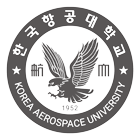
Department of Aeronautical and Astronautical Engineering
- Location :
- Rm No 300 , the Mechanical Engineering Building
- Telephone :
- +82 2 300 0100 / 0170
- E-mail :
- aesec@kau.ac.kr / mdsec@kau.ac.kr
Introduction
With world-class aerospace education and research capabilities, the Department of Aeronautical and Astronautical Engineering aims to develop talent with expertise in cutting-edge technologies of the 4th Industrial Revolution. The aviation industry requires skills and workforce in various fields such as aircrafts, drones, future air mobility (UAM/AAM), and guided weapons design/manufacturing/operation, and is emerging as a national key industry for a future growth engine. In addition, the space industry requires skills and workforce for several state-of-the-art systems such as solid and liquid propellant rockets, satellites, and space probes/rovers under the national space development plan, and the demand and market are expanding significantly in the defense and civilian sectors worldwide. The department offers the opportunity to become an expert with a profound understanding of advanced technologies as well as specialized knowledge and design/analysis skills in the aerospace field.
Study
By organizing an educational curriculum that combines aerospace engineering and advanced technology, the department develops professional engineers through the principles and applications of aerospace engineering and hands-on training. In order to develop the basic theory and analysis/design skills for aircraft, drones, launch vehicles, satellites, space exploration systems, future air mobility (UAM/AAM), and guided weapons, which are part of national strategic projects, the curriculum is composed of education, practice, and experimentation on basic mechanics and aerospace engineering core technologies, as well as design, interpretation, production, testing, and analysis. The major operates core technology education and comprehensive design (capstone design) courses in all fields of aerospace, including aerodynamics, flight mechanics, orbital dynamics, propulsion (rocket/turbine), aerospace system structure and materials, and aircraft and spacecraft system guidance/control/navigation.
Future
▪ Aviation Industries : Korean Air, Korea Aerospace Industries, Hanwha Aerospace, LIG Nex1, Korea Aerospace Research Institute,Agency for Defense Development, Korea Institute of Aviation Safety Technology, etc.
▪ Space Industries : Korean Air, Korea Aerospace Industries, Hanwha Aerospace, Hanwha Systems, LIG Nex1, Korea Aerospace Research Institute, Agency for Defense Development, Innospace, etc.
▪ Future Air Mobility Industries : Korean Air, Hanwha Aerospace, LIG Nex1, Hyundai Motor Company, Kakao Mobility, etc.
▪ Machinery Industries : HD Hyundai Heavy Industries, Samsung Heavy Industries, Hyundai Mobis, etc. -
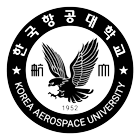
Department of Mechanical and Aircraft System Engineering
- Location :
- Rm No 300 , the Mechanical Engineering Building
- Telephone :
- +82 2 300 0100 / 0170
- E-mail :
- aesec@kau.ac.kr / mdsec@kau.ac.kr
Introduction
This degree program is designed to nurture advanced professional engineers in the mechanical and aviation MRO industries based on the study of the fundamental principles of mechanical devices and systems and the academic studies related to design, development, operation, control, and diagnostics. Aviation MRO refers to the maintenance of aircrafts, airframes, components, engines, and others to ensure safe operation and performance. The maintenance of aircraft parts and engines requires a high level of technology. The demand and market for related industries, such as aviation parts and manufacturing, are expanding significantly. Therefore, this degree program aims to train specialized professionals through a sophisticated curriculum in the high-value mechanical systems and aviation MRO industries.
Study
This program offers an educational curriculum that combines mechanical engineering and advanced technologies, and it is designed to prepare mechanical/aviation specialized professionals through basic principles and applications of mechanical devices and hands-on training in aviation MRO. Students learn the fundamentals of future automobiles, intelligent robotics, and renewable energy—which are all prominent high-tech strategic industries—and study disciplines such as thermal engineering, fluid mechanics, materials and solid mechanics, production engineering/automation, and automatic control. Aviation MRO practical training and comprehensive design (capstone design) courses, which are the specialties of our university, are mandatory and provide students with the opportunity to experience the latest technologies in mechanical systems and aviation MRO in accordance with the national core technology strategy. We are conducting core research of the future, establishing the necessary learning and research infrastructure, and have faculty who are core members in the field of mechanical and aircraft system engineering. We have the best MRO training program and facility (Aviation Technical Training Institute) in Korea, and we conduct aviation maintenance personnel and facility exchange programs with Korean Air.
Future
Graduates are employed in a wide variety of fields in the mechanical engineering and aerospace industries.
▪ Automobile Industries : Hyundai Motor Company/Kia, Hyundai Mobis, GM Korea, KG Mobility, etc.
▪ Electronics Industries : Samsung Electronics, LG Electronics, SK Hynix, Samsung Display, LG Display, etc.
▪ Heavy Industries and Construction : HD Hyundai Heavy Industries, Hanwha Ocean, Samsung Heavy Industries, Doosan Enerbility, Hyundai Engineering & Construction, Daewoo E & C, POSCO E&C, Lotte Engineering & Construction, etc.
▪ Aviation MRO Industries : Korean Air, Asiana Airlines, Jin Air, etc.
▪ Government Corporations : Korea Electric Power Corporation and subsidiaries, Korea Gas Corporation, Korea Energy Agency, etc.
▪ Government-funded Research Institutes : Agency for Defense Development, Korea Institute of Machinery & Materials, Korea Institute of Energy Research, Korea Institute of Civil Engineering and Building Technology, Korea Railroad Research Institute, etc.
-
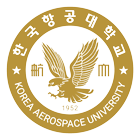
Department of Computer Engineering
- Location :
- Rm No 308 , the Electronic Engineering Building
- Telephone :
- +82 2 300 0120 , 0130
- E-mail :
- jhkim@kau.ac.kr , sjlim@kau.ac.kr
Introduction
The Department of Computer Engineering aims to develop talents with creativity and practical skills to play a pivotal role in computer systems and computer applications, which are at the core of current and future industries. The program consists of computer hardware, computer software, and computer applications: Computer hardware sector includes knowledge and skills in computer system configuration and design, computer structure, system semiconductors, and embedded systems. Computer software includes knowledge and skills in computer programming, software development, algorithms, and data structures. The field of computer applications involves applying computer technology in various areas such as artificial intelligence, big data, communication, networking, multimedia, AR/VR, robotics, and automotive. The department provides specialized knowledge and skills that are closely related to key areas of the 4th Industrial Revolution, such as artificial intelligence, big data, and IoT, which can be applied in various industries.
Study
Major subjects in the field of computer hardware include digital system design, computer architecture, microprocessor applications, embedded system design, VLSI systems, and introduction to SoC design. Major subjects in the field of computer software include system programming, operating systems, information security, big data and cloud computing, and software engineering. Major subjects in the field of computer applications include machine learning, communication systems, computer networks, digital signal processing, image processing, computer vision, and robotics.
Future
Computer engineering is closely related to the core areas of the 4th Industrial Revolution. Accordingly, the Department of Computer Engineering will offer a prominent future to its graduates. In addition, the advancement of existing industries such as 5G, multimedia, aerospace, and cyber security, as well as the emergence of new fields through convergence between industries are expected to create more diverse jobs related to computer engineering.
▪ Manufacturing Industries : Hardware/software development positions in electronics companies, telecommunications companies, semiconductor companies (IDM, fabless design house), automotive companies, etc.
▪ Finance : Software development and system administration positions in banks, insurance, and securities companies, and fintech/blockchain/data analytics positions
▪ Internet/Security/Game/Multimedia Industries : Software developers in web portal/cloud/social media companies, broadcasting/gaming/security/content companies, and hardware/software developers in the defense and aerospace industries
▪ Education and Government Positions : University professors (PhD), senior technical officials in central and local governments, and researchers at government-funded research institutes (MSc/PhD) -

Department of Electrical and Electronic Engineering
- Location :
- Rm No 308 , the Electronic Engineering Building
- Telephone :
- +82 2 300 0120 , 0130
- E-mail :
- jhkim@kau.ac.kr , sjlim@kau.ac.kr
Introduction
The Department of Electrical and Electronic Engineering provides students with a thorough education in the basic principles of electricity and electronics, the core of Korea's industry and the future of advanced information society. By offering a wide range of specialized fields, ranging from semiconductor components, equipment, and processes to integrated circuits and system HW/SW, power and energy, sensor systems required for space/satellite/defense, and advanced fields of robot control, this degree program strives to develop essential talents who will lead the future society. As a department focused on practical education and research, we are responsible for several major national research projects within the department, and we are conducting active research activities in basic, specialized and development laboratories.
Study
In addition to foundational courses such as numerical analysis and deep learning, the program offers differentiated courses in semiconductors (semiconductor devices, semiconductor engineering, semiconductor process practice and simulation), system semiconductors (analog integrated circuits, digital integrated circuit design), and sensors and control systems (intelligent radar, probabilistic robotics, emission security).
Future
Graduates will find themselves advantageous for employment in the fields of AI, semiconductors, intelligent automobiles, next-generation satellites, and the 4th Industrial sector, as well as high-tech companies and the defense industry.
▪ Semiconductor (Device & Process) : Memory/non-memory semiconductor companies, semiconductor foundry companies, semiconductor/display/battery-related materials, components, and equipment companies, electrical and electronics companies, national research institutes, further academic degree, etc.
▪ System Semiconductor (System IC) : Memory/non-memory semiconductor companies, fabless companies, IDM·design house·IP companies, electrical and electronics companies, automotive and aircraft electronics manufacturing and design companies, academic degree, etc.
▪ Sensor & Control System : Electrical/electronic major companies, electric vehicle/aircraft companies, aerospace and defense companies, robotics development and manufacturing companies, smart factory and logistics system companies, academic degree, etc. -
